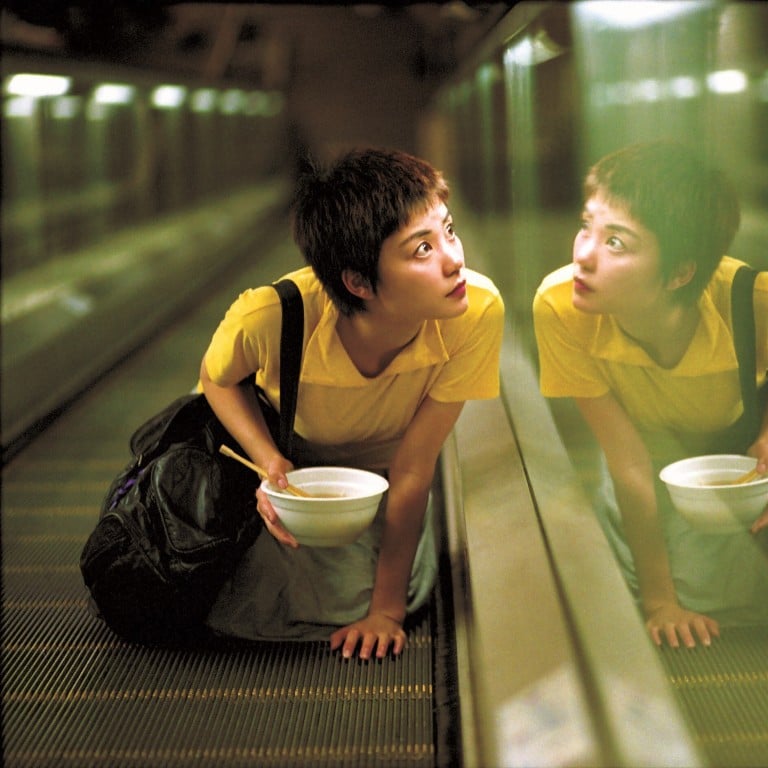How Wong Kar-wai – Hong Kong director of In the Mood for Love, Chungking Express and Happy Together – inspired filmmakers like Sofia Coppola and Barry Jenkins

Hong Kong cinema has provided the world with some of the greatest filmmakers of the last 50 years. If you want kung fu there’s Jackie Chan and Jet Li, if you want comedy there’s Stephen Chow, if you want gangster flicks there’s Johnnie To, if you want all-out action there’s John Woo.
Standing above all of them, though, is Wong Kar-wai. The director of In the Mood for Love, Chungking Express and Happy Together is the only Hongkonger to have won the best director award at Cannes. Whatever tremendously entertaining films other Hong Kong directors may have made, Wong is arguably the only director from the city to be treated as an auteur worthy of serious study.
As he celebrates his 62nd birthday on July 17, we look back on the extraordinary influence of the work of the Shanghai-born Wong who moved to Hong Kong aged five.
Wong’s films have been tremendously influential across the world. He is to serious drama what John Woo’s “bullet ballet” has been to action films like The Matrix. Wong’s influence, however, can be a little harder to detect than Woo’s, which is obvious nearly anytime a character starts firing off with two handguns ala Chow Yun-fat in A Better Tomorrow or The Killer.
One filmmaker who has been explicit about the impact of Wong on his own work is American director Barry Jenkins, whose 2016 film Moonlight won best picture at the Oscars. Chungking Express, in particular, was an eye-opener for Jenkins, who remarked that “stylistically it was made in a way that was different from any film I'd seen before … I like how much freedom there is in how [Wong] juxtaposes images.”
How In the Mood for Love became a modern masterpiece – 20 years on
The framing of numerous scenes in Moonlight also owe a tremendous debt to a number of Wong’s classic movies such as Happy Together and In the Mood for Love – films with thematic similarities to Wong’s work in their respective examinations of a relationship between two men and a love that never fully manifests.
In the Mood for Love’s presentation of two people in love but kept apart was also a tremendous influence on another American Academy Award winner, Sofia Coppola. In 2004 Coppola’s film Lost in Translation won the Oscar for best original screenplay and she made sure to thank Wong Kar-wai in her acceptance speech. Released four years after In the Mood for Love, Lost in Translation bears a number of similarities.
7 beautiful Asian movies that celebrate LGBTQ+ romance
Scarlett Johansson’s wife is estranged from her husband as was Maggie Cheung’s character, albeit not for reasons of infidelity. Similarly, she strikes up a relationship with another man that, no matter how close the pair become, remains ultimately platonic and come the end of the film, both must separate and go their own way.

Closer to home in Hong Kong, director Eric Kot’s First Love: The Litter on the Breeze was another film that used Wong Kar-wai as inspiration. An extremely meta piece of filmmaking – Wong even served as a producer – First Love follows a struggling director eventually offered the chance to film a quirky picture about a girl who collects road signs and sleepwalks. Wong-like in-jokes abound from the use of stars Takeshi Kaneshiro and Karen Mok, who had both acted in Wong’s Fallen Angels, to the fact that the picture’s struggling filmmaker decides to go rogue and shoot a second story, resulting in the kind of diptych present in both Fallen Angels and Chungking Express.
Away from these various tales of romance, Wong’s influence can be felt in sometimes more peculiar places. Indonesian martial arts movie The Raid and its sequel are two of the most spectacular action films of the 21st century and although their gory, bone-crunching set pieces may seem a mile away from Wong’s languorous stories of longing and heartache, director Gareth Evans has expressed an admiration for Wong’s work.

“We’ve always tried to keep our films grounded in a certain sense of reality, especially with the action sequences,” Evans said. “But one thing I wanted to do, when I introduced those characters, was that I knew they were going to be larger than life. With Hammer Girl I wanted her to be this iconic character. She’s influenced by Chungking Express and the crazy pop art characters in that.
5 roles that defined Tony Leung, Hong Kong’s top actor
Even away from cinema, there are some obvious odes to Wong. One prominent example is the music video for Halo, a top 10 single in the UK, by Scottish band Texas. Released in 1997 and filmed in Hong Kong, the MV is a four-minute tribute to Chungking Express.
The list of references is long. One of the central figures of the video is a woman in a blonde wig and large sunglasses entirely reminiscent of Brigitte Lin’s character in the film; there are bar scenes shot like those where Lin and Takeshi Kaneshiro’s character meet; a man in sunglasses sits in the same bar, looking just like Wong himself; Texas vocalist Sharleen Spiteri wipes down the counter of a shop, reminiscent of Faye Wong’s job at the Midnight Express dinner; and characters dash through the city and brush past each other momentarily all very much as Wong directed in his 1994 hit.
Want more stories like this? Sign up here. Follow STYLE on Facebook, Instagram, YouTube and Twitter .

His films are regarded as modern day classics, and have had a profound influence on the making of other great movies like Lost in Translation and Moonlight